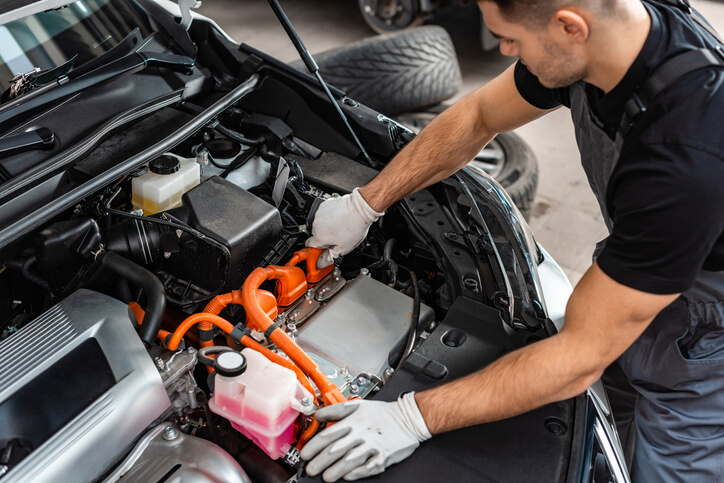Hydrogen Fuel Cell Cars 101: What Future Technicians Need to Know
If you’re enrolled in automotive training, you’re likely already learning about electric vehicles (EVs). But hydrogen fuel cell cars are another fast-emerging technology that technicians need to understand. With automakers around the world investing billions in hydrogen development, future-focused technicians must prepare now.
How Hydrogen Technology Works and Why It Matters
Hydrogen fuel cell vehicles generate electricity through a chemical reaction between hydrogen and oxygen without combustion. The only exhaust is water vapor. This green technology shares many benefits with EVs (zero emissions, quiet operation), but adds competitive refueling times and longer driving range.
Future technicians will need to stay current on both battery electric systems and hydrogen systems to remain marketable. Understanding how fuel cells complement or substitute for batteries is a growing advantage in precision vehicle servicing.
Key Differences From Electric Vehicles
While both EVs and fuel cell vehicles rely on electric motors, their energy sources differ:
- EVs store electricity in batteries that need hours to recharge, and battery degradation is a concern over time.
- Fuel cell vehicles produce electricity on demand via controlled hydrogen flow; they typically refill in under five minutes and offer greater range, making them attractive for commercial fleets and long-distance drivers.
This difference in energy storage means the diagnostic and maintenance requirements are also unique. Current technicians trained on traditional EVs will need to expand their understanding of hydrogen tanks, fuel cell stacks, and high-pressure safety protocols. That’s where career-focused automotive training at schools like CATI becomes invaluable.

What Technicians Will Need to Learn
As hydrogen vehicles become more mainstream, skilled auto mechanics must evolve their toolkits. Here’s what’s essential:
- Fuel cell operation and diagnostics: Understanding how the stack converts hydrogen into electricity is crucial. This includes checking for degradation, leaks, and balancing airflow.
- High-pressure hydrogen safety: Fuel is stored at up to 700 bar (over 10,000 psi), which demands rigorous training in system integrity, leak detection, and safe handling procedures.
- Hybrid system knowledge: Most hydrogen cars still use hybrid electric drivetrains. Knowing how to service electric motors, inverters, and regenerative braking systems is vital.
- Emissions and sensor diagnostics: Although they emit only water, fuel cell systems are full of advanced sensors and control systems that must be regularly calibrated.
This knowledge goes beyond combustion engine repair or EV battery swaps; it requires a new mindset that prioritizes clean energy and safety. Schools like CATI already integrate advanced modules to help students prepare for this evolving landscape.
Career Outlook and Industry Demand
Although still emerging, hydrogen technology is gaining traction globally. Automakers like Toyota, Hyundai, and Honda already have hydrogen models on the road. Heavy-duty truck manufacturers and public transit systems are also investing in fuel cell fleets, which means more automotive training grads will be hired to service these vehicles.
Technicians with hydrogen expertise will be especially valuable in:
- Dealerships specializing in fuel cell vehicles
- Commercial fleet service centers
- Hydrogen infrastructure and fueling stations
- Research and development departments for OEMs
For new auto mechanic students, this is an opportunity to specialize early. Those who embrace emerging technologies will be first in line for next-gen careers.

Learning Automotive Training at CATI
CATI’s Automotive Service Technician program equips students with the electrical, diagnostic, and mechanical skills required for modern vehicle systems. As the industry shifts, our training continues to evolve with it.
At CATI, students work hands-on with advanced tools and vehicles. They learn to read schematics, understand alternative fuel systems, and safely service components. By the time you graduate, you’re ready for both today’s vehicles and tomorrow’s breakthroughs.
Do you want to become an automotive service technician.
Contact CATI for more information.

